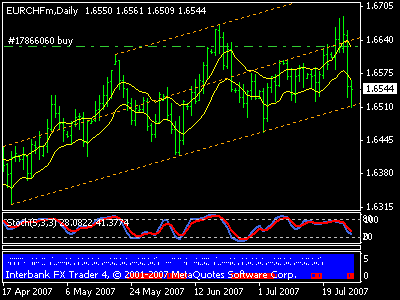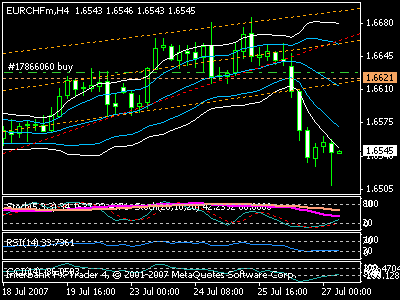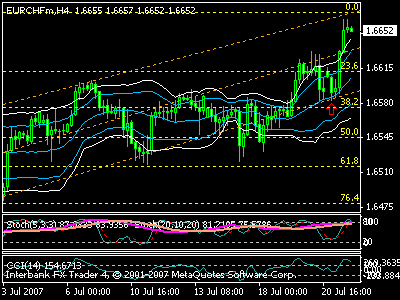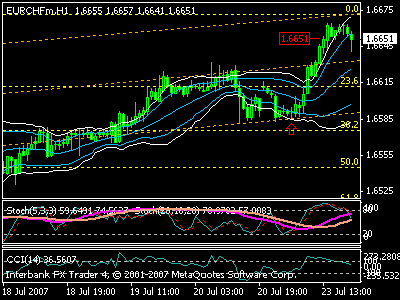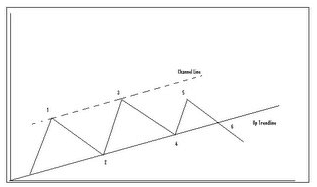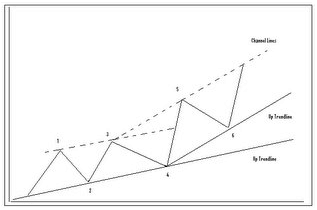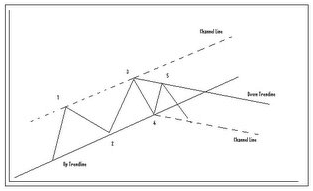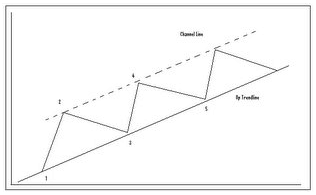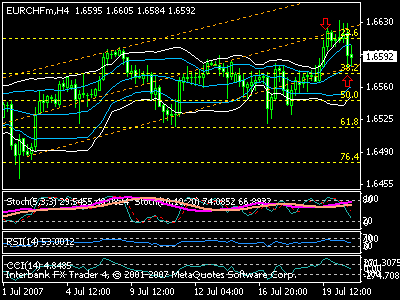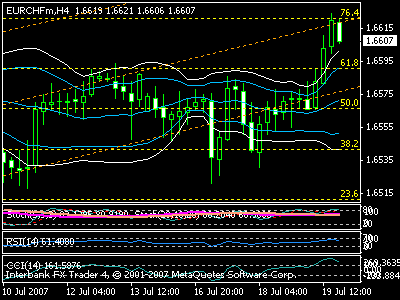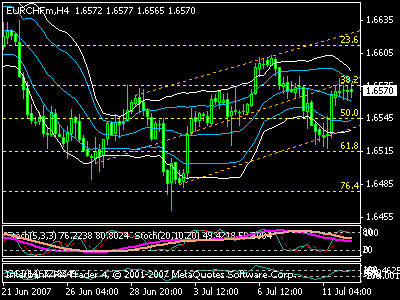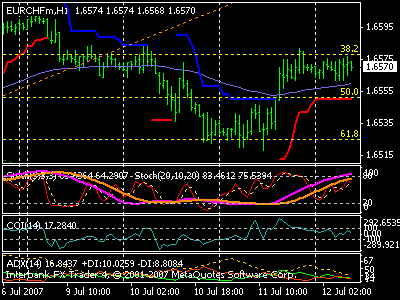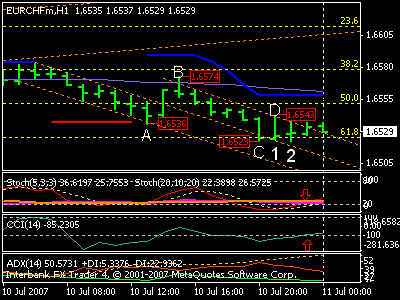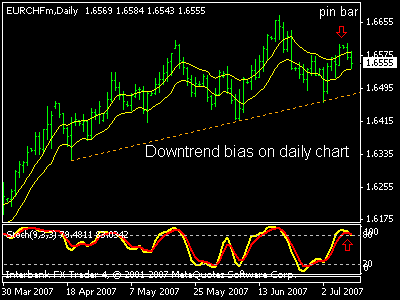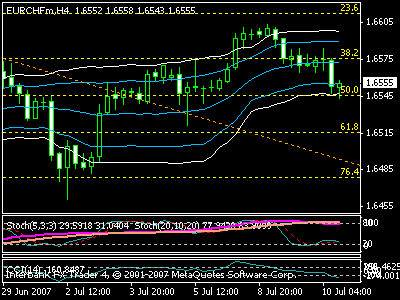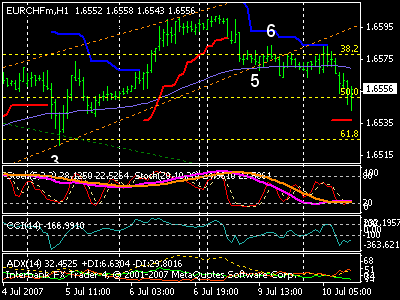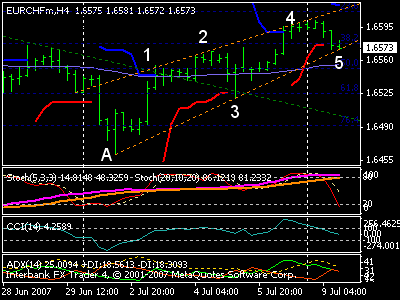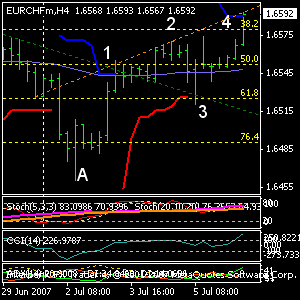Source: CNBC
The yen fell on Tuesday as a rise in U.S. stocks eased fears about deteriorating credit markets, helping to halt risk aversion that had led to the unwinding of carry trades and supported the Japanese currency.
Concerns about ongoing U.S. subprime mortgage market woes spreading to wider credit markets have prompted investors to cut risk exposure and close out carry trades in which they had borrowed in low-yielding currencies such as the yen to buy higher-yielding assets.
Moves in the U.S. stock market and developments in credit markets will continue to dictate market direction, with traders saying that the dollar's reprieve may prove to be short-lived if
U.S. stocks resume their slide later in the session.
The Dow Jones Industrial Average rose 0.7% on Monday, after falling 1.5% on Friday.
"The rebound in U.S. shares on Monday was not very strong, and if the Dow fails to rise today or wipes out all of Monday's gains, then the dollar could fall towards 118 yen and the euro
towards 161 yen," said a dealer at a Japanese bank.
Traders said that during the Tokyo session on Tuesday, month-end demand for dollars from Japanese importers was likely to support the dollar and the euro against the yen.
As traders kept their eyes on developments in the credit markets, a move by hedge fund Citadel Investment Group could help calm concerns about a credit crunch. Citadel said on Monday it took over Sowood Capital's credit portfolio after Sowood suffered heavy losses from bond trades.
The move showed that liquidity is still available, with some buyers ready to snap up beaten-down portfolios.
Market reaction was muted to Japanese employment data, which showed that jobless rate fell to a nine-year low of 3.7% in June.
A raft of key U.S. data is due out later in the session, including personal income and the core personal consumption expenditure (PCE) price index, a closely watched inflation gauge.










